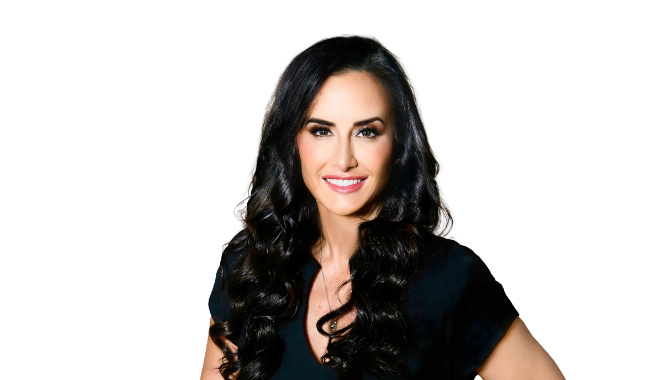

Jay Shetty & Dr. Aliza Pressman ON How to Avoid Your Parents' Mistakes
Are you ready to discover the true power of vulnerability and balance in your life? In this episode of On Purpose, Jay Shetty welcomed Alexis Ren and Allie Michelle, the dynamic duo behind We Are Warriors, who are now launching a new podcast, Easy A. They open up about how their deep friendship, which started in their preteen years, has shaped their personal growth.
In this On Purpose episode, Jay Shetty discussed strategies for raising confident and resilient children with Dr. Aliza Pressman, a developmental psychologist and parenting expert.
They touch on the importance of intentional parenting and building a secure bond with your child while setting clear boundaries.
Dr. Pressman advises that discipline should be about teaching rather than punishing. If you want confident children, you must help them grow their competence while allowing them a safe space to explore their growing independence.
The Ability to Offer Connection to Your Child
Dr. Pressman shared with Jay Shetty that parenthood should align with your personal calling. While the question of whether everyone should be a parent often surfaces in today's world, Dr. Pressman stresses that it's not up to others to dictate this decision. Moreover, not everyone wishes to become a parent.
Having children is a lifelong commitment; Dr. Pressman believes that whoever wants to welcome a child needs to engage in intentional self-reflection. Moreover, understanding your own development and upbringing can lead to more intentional and effective parenting.
Dr. Pressman also touches on the value of secure attachment relationships and their role in protecting against trauma. She explained to Jay Shetty that you can nurture these bonds at any stage of a child's development; however, it is essential for the parents to focus on being present for the child. They can foster a secure attachment through support, not by striving for their constant happiness. Parenting is not a straight line, and it is therefore important to make room for intentionality and reflection.
Set Parenting Expectations
Often, parents want to see their children happy and are willing to solve their problems. They can sometimes feel inadequate or guilty when children experience unpleasant feelings. However, Dr. Pressman explained to Jay Shetty that growth happens through challenges. She shares that being a perfect parent is impossible - everyone makes mistakes. However, it is essential to understand that these imperfections build resilience. It is hard to watch someone struggle, but being there for them is what matters more.
Dr. Pressman added that the energy we spend on self-criticism can be used for self-improvement. She suggests embracing all parenting experiences without shame. Additionally, she advises against trying to control all situations and overcorrecting by giving your child what you lacked in your early years. It is natural to want the best for your child, but be mindful to still allow them the freedom to discover themselves while enforcing healthy boundaries.
A tool to become more mindful is to create a personal mission statement as a parent. Dr. Pressman suggests reflecting on it regularly and adjusting as needed. She recommends writing down what your child might say about you to their grandchildren and using that as a guide. It is also important to check in with your children to see if your goals align with how they perceive you in everyday life.
Orchid vs. Dandelion Children
Even though they grow up in the same household and are raised by the same parents, children can have different responses to certain parenting techniques. Jay Shetty reflects on his upbringing, with his father not attending his sports events. To him, this behavior was a positive influence because it led him to develop strong self-validation skills. However, he is aware that other children may have felt abandoned in similar situations.
Dr. Pressman discussed different temperaments that we are born with; she compared children to different types of flowers—orchids, dandelions, and tulips—each requiring different environments to thrive.1 More sensitive children need specific conditions to thrive, similar to an orchid. On the other hand, dandelions are more resilient and need less specific requirements.
Dr. Aliza Pressman told Jay Shetty how important it is to recognize your child's unique temperament early and adapt to it. There is no one-size-fits-all approach to parenting. Yet you need to be adaptable as a parent to cater to your children's individual needs.
Balancing Parental Expectations and Communication
Jay Shetty also noted that parents find it challenging to manage their expectations and the frustration that arises when their children don't meet them. According to Dr. Pressman, this frustration originates from parents projecting their inadequacies onto their children. They expect them to succeed where they feel they have failed. So, she suggests that rather than viewing a child's sensitivities or challenges as weaknesses, parents should instead see them as potential strengths and opportunities for growth.
Dr. Pressman explained to Jay Shetty the concept of "goodness of fit." It describes the compatibility between a parent's and child's temperaments and how it can significantly impact their development. As a parent, you must be aware of your tendencies and how these might influence your parenting style. For example, if you are naturally less sensitive, you may need to work harder to understand and support a sensitive child. Therefore, Dr. Pressman encourages parents to keep an open mind. Try to view your children's differences as opportunities for learning and growth.
During a child's early years, physical communication is more effective than words. Dr. Pressman explained to Jay Shetty that young children respond better to physical touch and their parents' emotional state rather than words. As they grow, communication can evolve to include more verbal interactions. However, it is crucial for parents to ensure their words align with their true feelings and remain honest and clear in their communication. Children are highly attuned to nonverbal cues, and mixed messages can lead to confusion and mistrust.
Guiding and Preparing Children for Life
To Dr. Pressman, discipline equals teaching rather than punishment. She told Jay Shetty her motto: "All feelings are allowed, all behaviors are not." She explains that discipline should focus on setting boundaries for the child's emotional and physical safety, and parents should enforce them consistently. This approach builds trust and strengthens the parent-child relationship, even when children react negatively to limits.
Even if children dislike boundaries, it is essential to maintain them, Dr. Pressman explained. In her opinion, parents must resist the urge to backtrack on rules simply to avoid conflict. She exemplifies three different parenting styles: permissive (lacking structure), authoritarian( fear-based), and authoritative (balancing sensitivity with firm boundaries). According to her, the authoritative style is the most effective because it combines empathy with consistent rule enforcement. In the long run, the long-term benefits of consistent, thoughtful discipline outweigh the short-term discomfort.
Being There for Them
Jay Shetty shared his personal experience of rebelling as a teenager. Only when he grew up he learned to appreciate his parents' guidance. Looking back, he understood that his parents' actions were not failures but part of his natural development as a human being. It is normal for teenagers to push back against parental guidance.
Dr. Aliza Pressman explains to Jay Shetty that this pushback is a crucial part of adolescent development. Teenagers need to establish their independence before they leave home, a process that often involves rejecting parental influence to some degree. However challenging it may be for both parties, it is essential to maintain the connection with your children during these years and offer them unconditional support without smothering them.
A strategy for encouraging children to open up is to build trust and communication in the calm moments. This way, you will let your children know they can come to you whenever they need you. Dr. Pressman explained to Jay Shetty that the goal is to create a safe environment where children feel comfortable sharing without fear of overwhelming reactions. She recommends behaving like a cat rather than a dog: be present but not overly eager or intrusive. This way, you can build a strong, trusting relationship where children can express themselves freely.
Start the Conversation Early
Jay Shetty asked Dr. Pressman about the difficulty of maintaining a balance between being protective and allowing independence as children grow older. The teenage years are particularly challenging as young adults start engaging in risky behavior, such as experimenting with substances and getting influenced by social media. This is a time when parents feel the urge to become more hands-on, although it is important to also allow space for self-discovery.
Dr. Aliza Pressman agrees with Jay Shetty that this period is terrifying for parents. However, she advises them to limit verbal control over their children; be there for them physically, but let them come to you when they need it, not invading their freedom. Teenagers need space, but they also require parents to be present, especially during critical moments like coming home from a party. Therefore, parents should aim to create a safe and supportive environment for their children. Find the right balance between setting firm boundaries and allowing children to make mistakes.
Moreover, Dr. Pressman explained to Jay Shetty that parents should start conversations about sensitive topics early on. You need to educate your children on social media and substance use before they reach the age when they want to try it out. Your goal should be to remain your child's first line of support by creating a safe and supporting environment. Children should be able to come to you without fear. Yet Dr. Pressman stresses the importance of boundaries - no matter how well instructed, teenagers are wired to rebel. Therefore, she advises setting firmer boundaries so that when the adolescents break them, they can still safely navigate their growing independence.
Cultivating Confidence Through Competence
It can feel daunting to find the right balance between discipline and encouragement, especially if you want to raise confident children. Dr. Aliza Pressman shared with Jay Shetty the importance of building competence rather than relying solely on praise. To have a confident child, you need to make them competent first. She explains that confidence stems from developing skills and abilities, which in turn grows self-assurance.
A powerful way to build confidence is by encouraging a child's interests, even if you are not skilled in those areas yourself. It is important to allow them space to discover themselves and limit their control over the outcomes. Dr. Pressman believes the key to effective parenting lies in focusing on what you can control: your behavior and reactions.
More From Jay Shetty
Listen to the entire On Purpose with Jay Shetty podcast episode on “Dr. Aliza Pressman ON How to Avoid Your Parents’ Mistakes & Raise Confident and Resilient Kids” now in the iTunes store or on Spotify. For more inspirational stories and messages like this, check out Jay’s website at jayshetty.me.
1Boyce, W. Thomas, The Orchid and the Dandelion: Why Some Children Struggle and How All Can Thrive. New York, Alfred A. Knopf, 2019.
Sign up for the only email that puts purpose at the center of your day.




Looking for greater meaning? This quiz shows you how to live with purpose every day.
Take the Quiz
Dreaming of becoming a life coach? This quiz tells you if a coaching career is right for you.
Take the Quiz

Dreaming of becoming a life coach? This quiz tells you if a coaching career is right for you.
Take the Quiz

Everyone communicates differently. Discover your own personal fight style now.
Take the Quiz

Understanding your role in a relationship is the first step to making things work.
Take the Quiz


